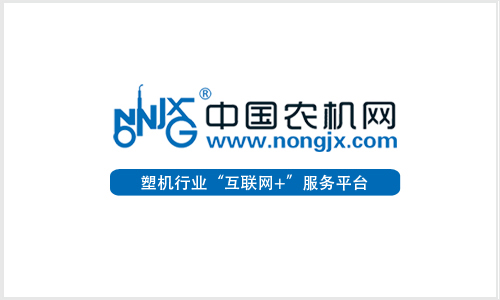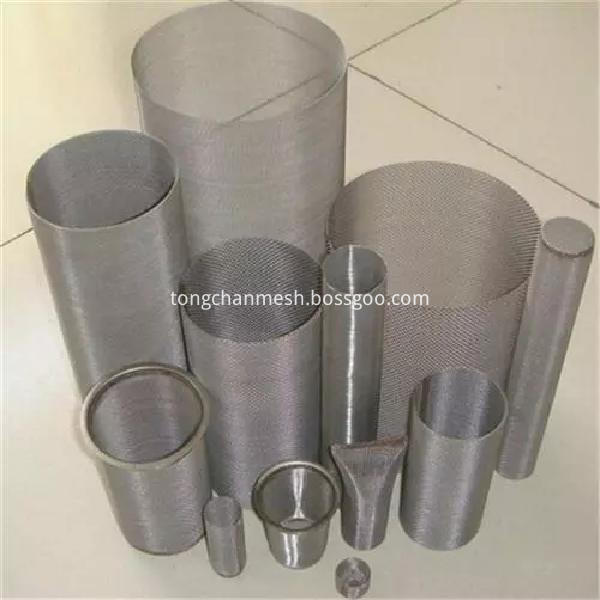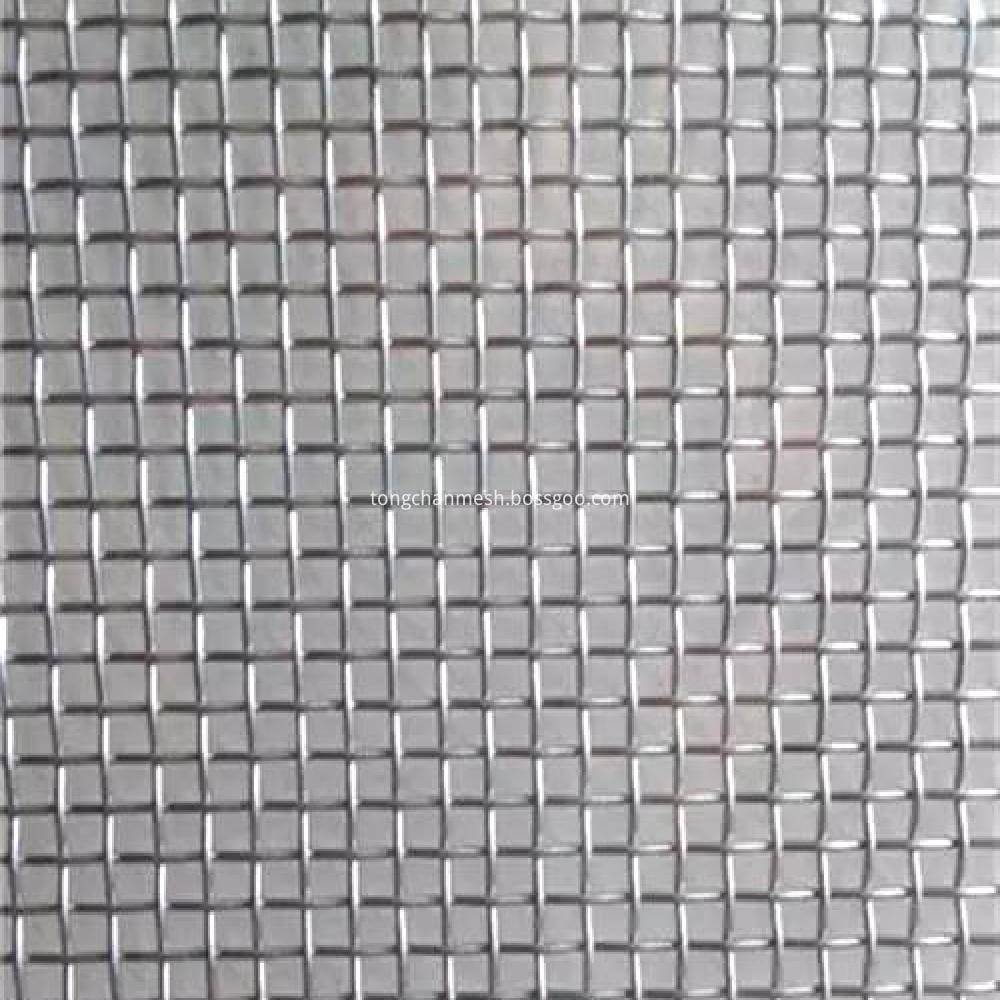Our stainless steel wire mesh products are generally made of stainless steel Type 302, 304, 304L, 316, 316L, 321 and 430 etc. We produce wire cloth in all kinds of forms. The weaving is
determined according to our customers` specific requirements, such as the material,
the wire diameter, the size of the mesh, width and length.
Popular weaving types we use
for wire mesh cloth: plain weave, twilled weave, dutch plain weave, dutch twilled weave, reverse weave, five heddle weave.
Stainless
steel mesh is widely used in mining, chemical, food, pharmaceutical and
other industries, such as filter mesh net, protective nets, kitchen
baskets, etc.
Stainless Steel Mesh,Stainless Steel Net,Plain Weave Stainless Steel Mesh,Stainless Steel Wire Mesh Hebei TongChan Imp.&Exp.Co., Ltd. , https://www.tongchanmesh.com
Since the beginning of the new century, we have abolished the agricultural tax, implemented direct subsidies for grain farmers, subsidies for improved varieties, subsidies for the purchase of agricultural machinery and equipment, comprehensive subsidies for agricultural materials, and implemented policies such as low purchase price of rice and wheat and temporary storage and storage policies for other important agricultural products. The national food security strategy based on me, based on domestic, ensuring production capacity, moderate import, and scientific and technological support, has achieved remarkable results. 

The development of modern agriculture cannot rely solely on subsidies or hard work
[China Agricultural Machinery Industry News] To ensure food security and the steady and steady growth of farmers' income, it is the two basic goals of China's grain policy. Although China has achieved a "twelve consecutive increase" in food, China's food problem is still worthy of attention.
The development of modern agriculture cannot rely solely on subsidies or hard work
At present, domestic agricultural production costs are rising rapidly. The prices of bulk agricultural products are generally higher than those of international markets. Agricultural product processing enterprises tend to purchase imported agricultural products, resulting in the phenomenon of “imports entering the market, acquiring and warehousingâ€. The agricultural products purchased at low purchase price or temporary storage price cannot be sold at the same price and accumulated in the warehouse. China's grain stocks have reached new highs. The amount of grain stored by various grain and oil storage enterprises is large, and the storage costs and loan interest subsidies have become a heavy financial burden. During the “Thirteenth Five-Year Plan†period, China is at the node of a major turning point in food policy. It needs to innovate policies related to food security and innovate ideas and measures in ensuring food security and income from farmers.
Safeguarding food security and the interests of grain farmers are not damaged and will continue to be the cornerstone of the policy. In the future, the policy basis for ensuring food security should focus on the storage of grain and land, and focus on improving the comprehensive agricultural production capacity, focusing on agricultural technology innovation, tapping the potential of food production, and ensuring that food can be produced and supplied in emergency use. Come on. Promote the adjustment of agricultural planting structure, and implement trials of arable land rotation for fallow in some areas. During the “Thirteenth Five-Year Plan†period, the annual grain output can be increased or decreased according to the supply and demand situation, but the production capacity must be consolidated and improved to ensure the basic self-sufficiency of grain and safe food.
It is imperative that grain storage go to stock. We should speed up the process of marketization and destocking. We can consider not sticking to the bottom line of price-selling. The bidding price policy should be linked with the market price. At the same time, we should innovate the mode of agricultural enterprise loans and enhance the ability of enterprises to purchase grain. The advantage of this is that it can reduce the overdue storage of grain, avoid new intermixing, and strengthen the protection of food security from the quality level; it can free up the storage capacity and solve the problem of excessive pressure on policy food stocks; it can effectively reduce agricultural aquaculture enterprises and agricultural products. The cost of processing companies.
In the long run, we must improve the market-oriented pricing mechanism for important agricultural products. The improvement of market-oriented important agricultural product price formation mechanism and the implementation of price and subsidy separation methods can not only guide farmers to adjust the planting variety structure according to market signals, but also ensure food security and prevent farmers' interests from being lost. This requires the reform of the agricultural product price formation mechanism and the reform of the storage and storage system, paying attention to the convergence and cooperation of the old and new policies, and adopting a series of comprehensive supporting measures to keep the prices of agricultural products basically stable and prevent the “gluten-stricken farmersâ€. On the one hand, according to the importance of various major agricultural products in the national economy and the people's livelihood, we can adopt the method of sub-variety policy and gradual advancement to improve the price formation mechanism of agricultural products. According to the principle of being close to the market and ensuring the reasonable income of farmers, the purchasing price will be determined and the policy of purchasing and storing agricultural products will be improved. On the other hand, pilot the agricultural subsidy reform, and merge the current “three subsidies†(crop crop subsidies, direct grain supplements, and comprehensive subsidies for agricultural materials) into agricultural support protection subsidies. We will improve the compensation mechanism for major grain-producing areas and increase the transfer payments to major agricultural production areas and key ecological functional areas. Encourage qualified places to explore ways to subsidize farmers' income and innovate agricultural product price insurance systems. It should also be noted that farmers need a process to switch production based on price signals and adjust production structure. The formation of mature industrial models, complete upstream and downstream industry support, and even the cultivation of pre-production and post-production supply chains also require a process that cannot be achieved overnight. Therefore, in the reform, we must carry forward the nailing spirit and avoid the impatient mentality.
Fundamentally, the development of modern agriculture cannot rely solely on subsidies, or it must be hard-working. It is necessary to improve agricultural labor productivity through moderate scale operation, improve agricultural total factor productivity through technological innovation and institutional innovation, and reduce agricultural production costs and circulation costs through comprehensive supporting measures such as improving agricultural socialized service system and improving farmers' organizational level. Cultivate new types of professional farmers to fill the shortcomings of lack of agricultural talents, and comprehensively improve the market competitiveness of China's agriculture. (The author is a member of the Chinese Academy of Social Sciences and a researcher at the Institute of Rural Development)
(Original title: Sound: Food policy can't rely on subsidies to practice hard work)
